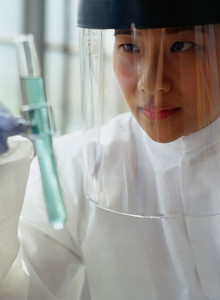The market for contract manufacturing organisations (CMOs) will be worth US$33.7 billion (Euros 22.4 billion) by 2014 according to the latest Business Monitor International (BMI) report The CMO Market Outlook: Emerging Markets, Key Players and Future Trends published in October 2009, which says developing biologicals/biosimilars capabilities is a key imperative for growth.
CMO market to be worth US$33.7 billion by 2014
Home/Pharma News
|
Posted 16/12/2009
 0
Post your comment
0
Post your comment

The BMI report writes that falling productivity and patent expiries are placing increasing pressure on pharmaceutical companies to reduce fixed costs, including large manufacturing facilities. Sponsors are turning to CMOs in search of time and cost savings and as a way to flexibly manage outsourced manufacturing. Key players in the global, Chinese and Indian markets are BASF, Boehringer Ingelheim, DSM, Evonik, Fareva, Jubilant, Lonza, Patheon, and Wockhardt. Meanwhile, the threat of overcapacity combined with inevitable programme cancellations following mega-mergers resist the market.
Key findings from this BMI report are that: 1) the CMO market was worth US$22.2 billion in 2009 and will reach US$33.7 billion (Euros 22.4 billion) by 2014, with biopharmaceutical manufacturing being the fastest growing industry segment; 2) the sale of captive facilities, cost pressures, the rising number of products in development and the growth of the biopharmaceuticals industry are all driving the CMO market; 3) strategic outsourcing often entails establishing longer and deeper relationships with a limited number of providers, and many sponsors are selling their own facilities in order to reduce fixed costs; 4) North America leads the world in biomanufacturing, but Asia’s share of global biomanufacturing facilities is expected to double from 10% in 2009 to around 20% by 2013; and 5) outsourced manufacturing is shifting from established markets in the West to emerging markets in the East.
According to the BMI report, pharma’s pipeline includes an increasing proportion of biologicals and this, coupled to the predicted increase in the biosimilars market, will drive growth at CMOs. However, biologicals manufacturing has significantly higher barriers to entry in comparison with small molecules. Manufacturing biologicals requires more investment in infrastructure and is more complex, as highlighted by Genzyme’s difficulties scaling up from 160 L to 2,000 L bioreactors. Consequently, there are relatively few CMOs with biologicals capabilities, but BMI believes this must change, describing the development of biomanufacturing capacity as “a key imperative for CMOs in the future”.
The majority of the current biomanufacturing capacity is in North America, but Asia is the growth region. However, the report states that “most Asian CMOs still fail to demonstrate the rigor of regulatory compliance that Western companies demand and their customers expect”. This situation needs to improve, as do regulations in India and China. To fulfil their potential, India and China must implement stronger actions to control domestic supplies of raw materials and collaborate closely with foreign regulatory bodies. By undertaking these actions the countries can ensure they comply with Western manufacturing standards, which could be particularly important for the more complex process of producing biologicals.
References:
Taylor N. CMO market worth $33.7bn by 2014. In-Pharma Technologist. 2009 Nov 25.
The CMO Market Outlook: Emerging Markets, Key Players and Future Trends. Business Monitor International. 2009 Oct.
Source: In-Pharma Technologist; Business Monitor International
Guidelines
US guidance to remove biosimilar comparative efficacy studies
New guidance for biologicals in Pakistan and Hong Kong’s independent drug regulatory authority
Policies & Legislation
EU accepts results from FDA GMP inspections for sites outside the US
WHO to remove animal tests and establish 17 reference standards for biologicals
Formycon signs new aflibercept biosimilar pacts and launches ranivisio in Europe

Home/Pharma News Posted 13/11/2025
Bio-Thera and Stada expand biosimilars alliance to include tocilizumab

Home/Pharma News Posted 20/10/2025
The best selling biotechnology drugs of 2008: the next biosimilars targets








Post your comment